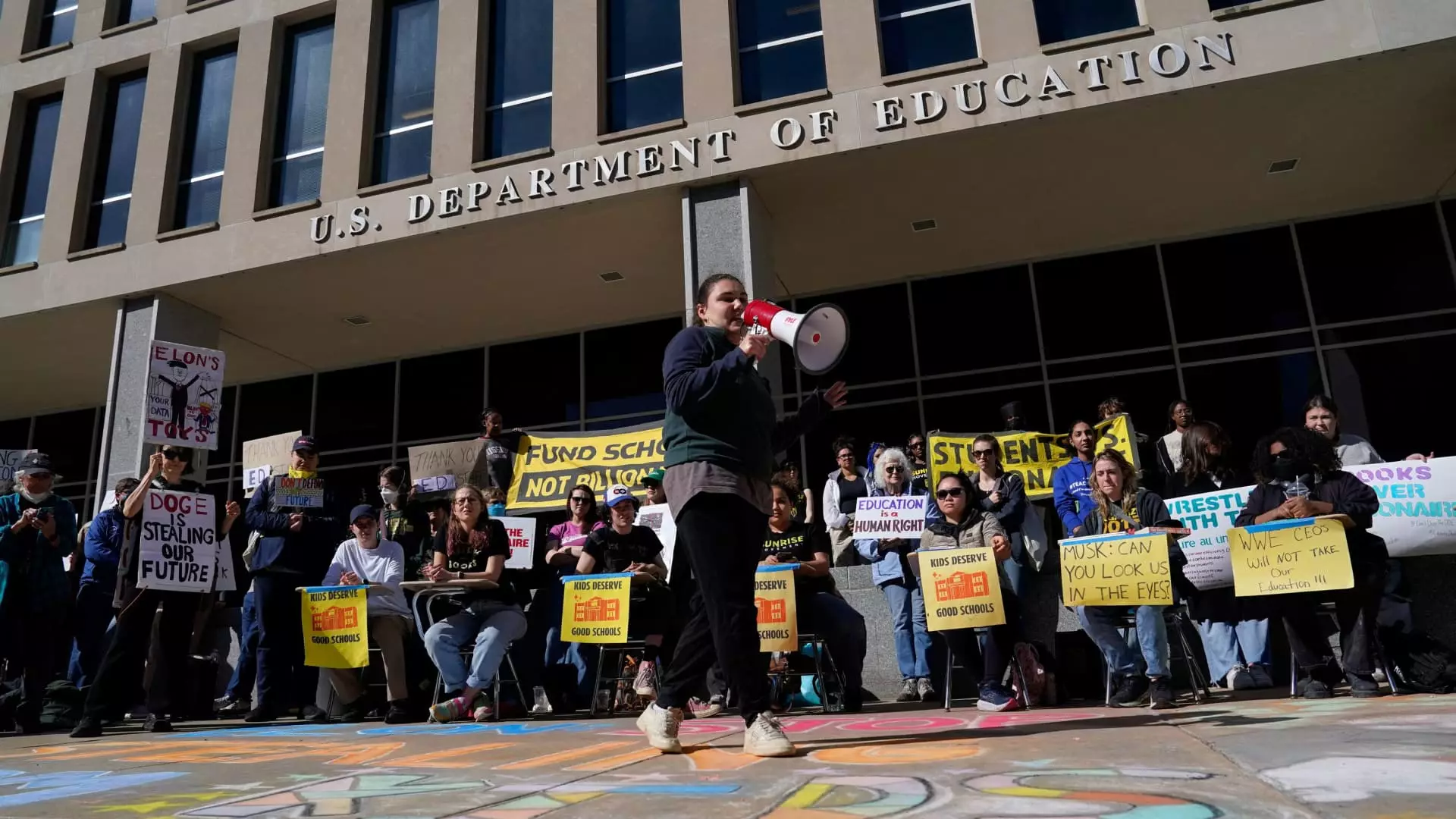In a troubling demonstration of governmental overreach, the Trump administration has recently taken an alarming step by appealing to the Supreme Court to lift a previous court order that mandates the reinstatement of over 1,300 terminated employees from the U.S. Department of Education. This move is not simply an administrative shuffle but a blatant effort to dismantle an essential agency that plays a crucial role in protecting the rights of students across the nation. It reflects a broader strategy aimed at hollowing out federal education resources under the guise of streamlining operations, a euphemism that belies the potential dangers lurking beneath.
The Consequences of Dismantling
The sheer volume of layoffs—over a thousand employees—leads to a stark reality: key offices that enforce civil rights will be shuttered, adversely impacting students of color and those with disabilities who depend on federal provisions for protection against discrimination. Judge Myong Joun’s ruling highlighted the fact that seven out of twelve offices responsible for civil rights enforcement were closed due to these cuts. This should send shivers down the spine of anyone who values equity in education. The implications are dire; the heart of civil rights enforcement in education is being chipped away at a time when such protections are desperately needed.
Furthermore, consider the eradication of the entire team overseeing the Free Application for Federal Student Aid (FAFSA). With approximately 17 million families relying on this application for financial support in accessing higher education, the decision to eliminate this team showcases an alarming disregard for the educational aspirations of millions. Are we really ready to accept that financial aid access could become significantly more convoluted as a result of arbitrary staff reductions? It seems we are witnessing a willful abandonment of responsibility.
The Legal and Political Landscape
Despite the ongoing legal battles, it’s evident that the Trump administration is committed to its agenda of trampled ideals. The federal government cannot abolish an entire agency without Congressional approval—a principle that highlights the system of checks and balances designed to protect against radical overreach. The necessity for education in this country is undeniable; it fuels progress and innovation, yet here we have a sitting president actively attempting to reverse decades of educational and civil rights advancements.
While it’s laudable that 21 states, including populous regions like New York and Michigan, have rallied against this initiative, one must wonder: Will this legal pushback suffice? Will the judiciary protect the integrity of the Education Department, which was established after much deliberation and aimed at ensuring equitable access to quality education? The historical context is crucial here; even previous administrations have recognized the importance of this agency’s work, making Trump’s stance all the more perplexing and troubling.
A Call to Action
In a democratic society, citizens must remain vigilant and active against such deeply rooted anti-educational sentiments. Reducing resources that safeguard the most vulnerable in our educational system is neither fiscally prudent nor ethically acceptable. As such, it is imperative that we, as a society, mobilize support for defending the Department of Education’s integral role. The implications of allowing these cuts to stand extend far beyond numbers on a spreadsheet; it speaks to the very future of educational equity in America. How can we allow ourselves to return to an era where the protection of students’ rights is sidelined in favor of a severely diminished federal presence? The battle for educational rights is far from over, and now, more than ever, vigilance is essential.

